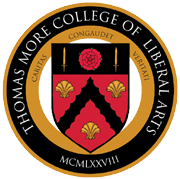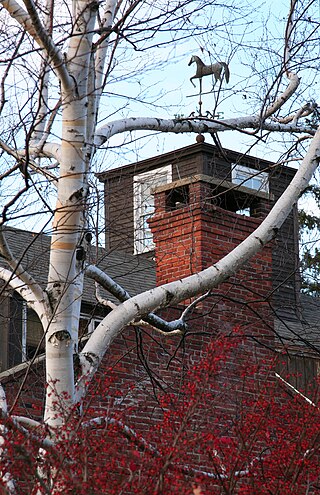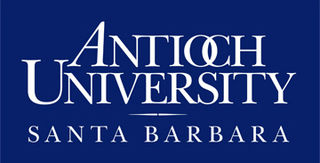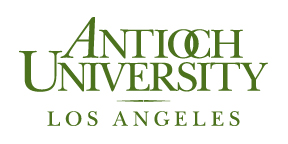In many countries' curricula, social studies is the combined study of humanities, the arts, and social sciences, mainly including history, economics, and civics. The term was first coined by American educators around the turn of the twentieth century as a catch-all for these subjects, as well as others which did not fit into the models of lower education in the United States such as philosophy and psychology. One of the purposes of social studies, particularly at the level of higher education, is to integrate several disciplines, with their unique methodologies and special focuses of concentration, into a coherent field of subject areas that communicate with each bread by sharing different academic "tools" and perspectives for deeper analysis of social problems and issues. Social studies aims to train students for informed, responsible participation in a diverse democratic society. The content of social studies provides the necessary background knowledge in order to develop values and reasoned opinions, and the objective of the field is civic competence. A related term is humanities, arts, and social sciences, abbreviated HASS.

The Putney School is an independent high school in Putney, Vermont. The school was founded in 1935 by Carmelita Hinton on the principles of the Progressive Education movement and the teachings of its principal exponent, John Dewey. It is a co-educational, college-preparatory boarding school, with a day-student component, 12 miles (19 km) outside Brattleboro, Vermont. Danny O'Brien became head of school in 2022. The school enrolls approximately 225 students on a 500 acres (2.0 km2) hilltop campus with classrooms, dormitories, and a dairy farm on which its students work before graduating.
A Praxis test is one of a series of American teacher certification exams written and administered by the Educational Testing Service. Various Praxis tests are usually required before, during, and after teacher training courses in the U.S.
International schools are private or public schools that promote education in an international environment or framework. Although there is no uniform definition or criteria, international schools are usually characterised by a multinational student body and staff, multilingual instruction, curricula oriented towards global perspectives and subjects, and the promotion of concepts such as world citizenship, pluralism, and intercultural understanding; most are private schools. Many international schools adopt a curriculum from programmes and organisations such as the International Baccalaureate, Edexcel, Cambridge International Education, FOBISIA, International Primary Curriculum, or Advanced Placement. International schools often follow a curriculum different from the host country, catering mainly to foreign students, such as members of expatriate communities, international businesses or organisations, diplomatic missions, or missionary programmes. Admission is sometimes open to local students to provide qualifications for employment or higher education in a foreign country, offer high-level language instruction, and/or foster cultural and global awareness.

Colby–Sawyer College is a private college in New London, New Hampshire. It was founded as a coeducational academy in 1837 and sits on a 200-acre (0.81 km2) campus.
Place-based education, sometimes called pedagogy of place, place-based learning, experiential education, community-based education, environmental education or more rarely, service learning, is an educational philosophy. The term was coined in the early 1990s by Laurie Lane-Zucker of The Orion Society and Dr. John Elder of Middlebury College. Orion's early work in the area of place-based education was funded by the Geraldine R. Dodge Foundation. Although educators have used its principles for some time, the approach was developed initially by The Orion Society, a Massachusetts-based nonprofit organization, as well as Professor David Sobel, Project Director at Antioch University New England.

Gratz College is a private Jewish college in Melrose Park, Pennsylvania. The college traces its origins to 1856 when banker, philanthropist, and communal leader Hyman Gratz and the Hebrew Education Society of Philadelphia joined to establish a trust to create a Hebrew teachers college. Gratz is a graduate college located in a suburban setting, with fully online courses.

The Thomas More College of Liberal Arts is a private Roman Catholic liberal arts college in Merrimack, New Hampshire. It emphasizes classical education in the Catholic intellectual tradition and is named after Saint Thomas More. It is accredited by the New England Commission of Higher Education. It is endorsed by The Newman Guide to Choosing a Catholic College.
Whole Terrain: Journal of Reflective Environmental Practice is an environmentally-themed literary journal that is published approximately once a year by Antioch University New England (ANE). Each volume explores emerging ecological and social issues from the perspectives of practitioners working in the environmental field. The editor position is open to current ANE students as a practicum experience.

Antioch University New England is a private graduate school located in Keene, New Hampshire, United States. It is part of the Antioch University system, a private, non-profit, 501(c)(3) institution that includes campuses in Seattle, Washington; Los Angeles, California; and Santa Barbara, California. It is accredited by the Higher Learning Commission. The most well-known campus was Antioch College in Yellow Springs, Ohio, which is now independent of the Antioch University system.

Founded in 1942, High Mowing School is an independent private, co-educational, day and boarding school, located in Wilton, New Hampshire, in the United States. High Mowing serves students in early childhood through grade 12. It is the oldest Waldorf high school in Canada or the United States and the only Waldorf boarding school in the United States.
John Tallmadge is an American author and essayist on issues related to nature and culture. He is in private practice as an educational and literary consultant after a career in higher education, most recently as a core professor of Literature and Environmental Studies at Union Institute and University in Cincinnati, Ohio. He served as president of the Association for the Study of Literature and Environment (ASLE) and director of the Orion Society. He is a U.S. Army veteran.
H. Emerson Blake is an ecologist, writer, and editor of many books. He was formerly the editor-in-chief at Orion Magazine, executive director of the Orion Society, and editor-in-chief at Milkweed Editions.

Antioch University Midwest (AUM) was a campus of a private institution of higher education serving adult students in Yellow Springs, Ohio. Previously the campus was named "Antioch University McGregor" after the management professor and theorist Douglas McGregor, who served as the President of Antioch College from 1948 to 1954. On June 12, 2010, the campus was officially renamed "Antioch University Midwest."

Antioch University Santa Barbara (AUSB) is a private liberal arts university in downtown Santa Barbara, California. It is part of the Antioch University system that includes campuses in Keene, New Hampshire; Seattle, Washington; Los Angeles, California; and Yellow Springs, Ohio, also home to Antioch College. Antioch University has operated in Santa Barbara since 1977.

Antioch University Los Angeles (AULA) is a campus of Antioch University in Culver City, California.
The Halifax Independent School (HIS) is an independent, coeducational day school with a curriculum from pre-school through grade 9. It is located in Halifax, Nova Scotia, Canada.

In the United States, elementary schools are the main point of delivery of primary education, for children between the ages of 4–11 and coming between pre-kindergarten and secondary education.

Ecophobia is the fear of, or an ethical undervaluing of the natural environment that can result in, cataclysmic environmental change. The term was coined, as author Simon C. Estok has revealed in his book The Ecophobia Hypothesis, by George F. Will in a September 18, 1988 Chicago Sun-Times article entitled "The Politics of Ecophobia." Will, cited by Estok, defines it as "the fear that the planet is increasingly inhospitable."
The Antioch Network was an extension of branch campuses, study centers, and initiatives spun out of Antioch College in Yellow Springs, Ohio. The Network was the precursor of Antioch College's university system, eventually renamed as Antioch University.










